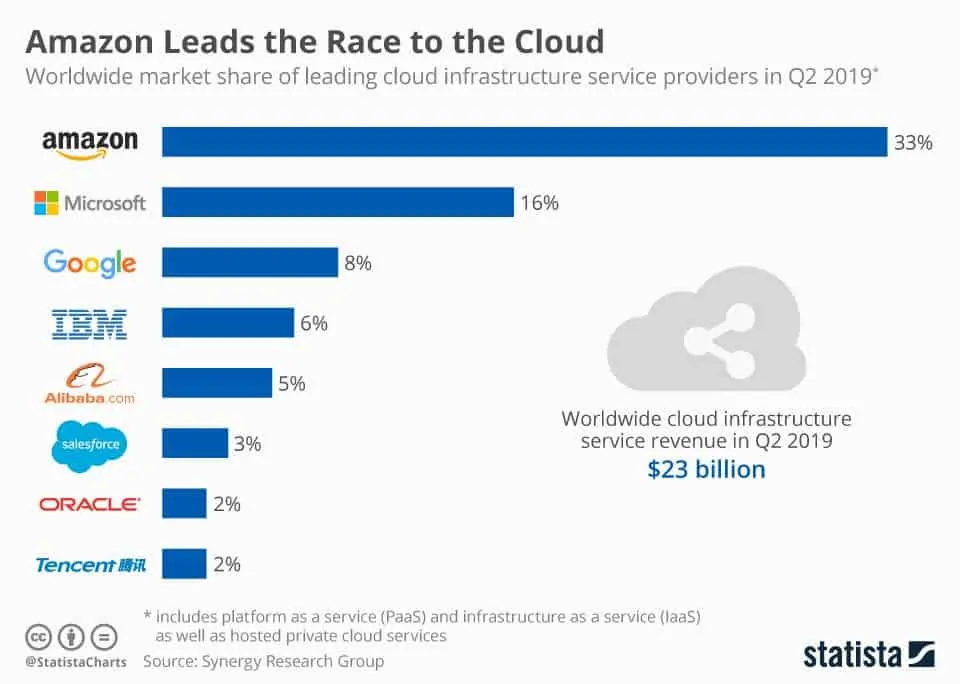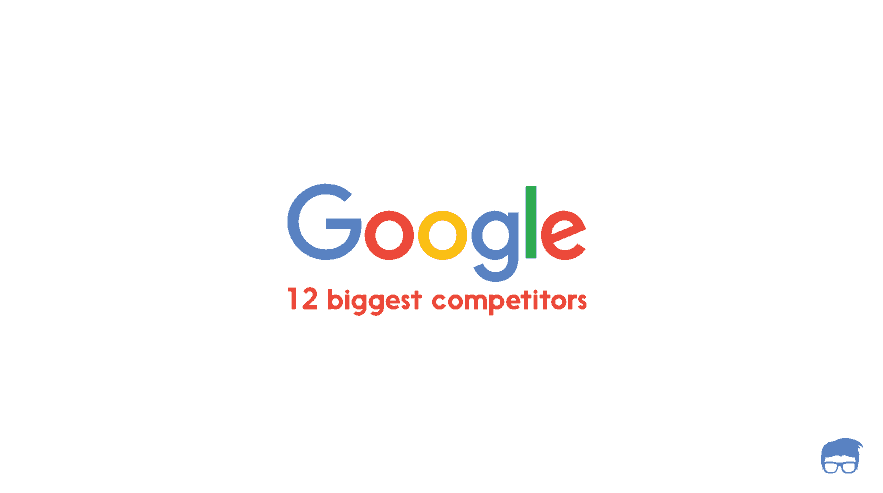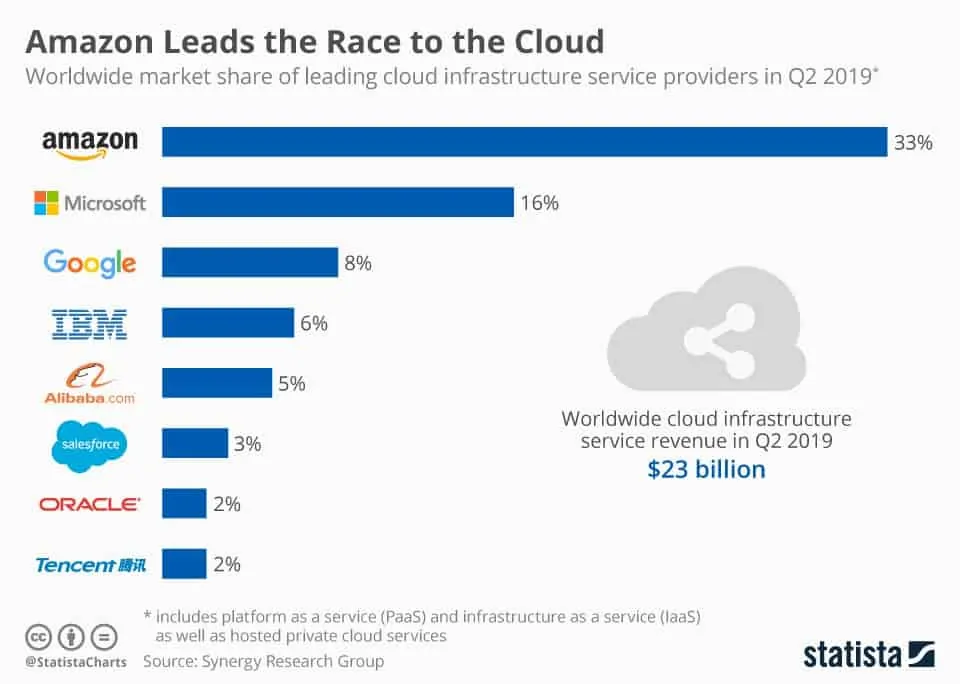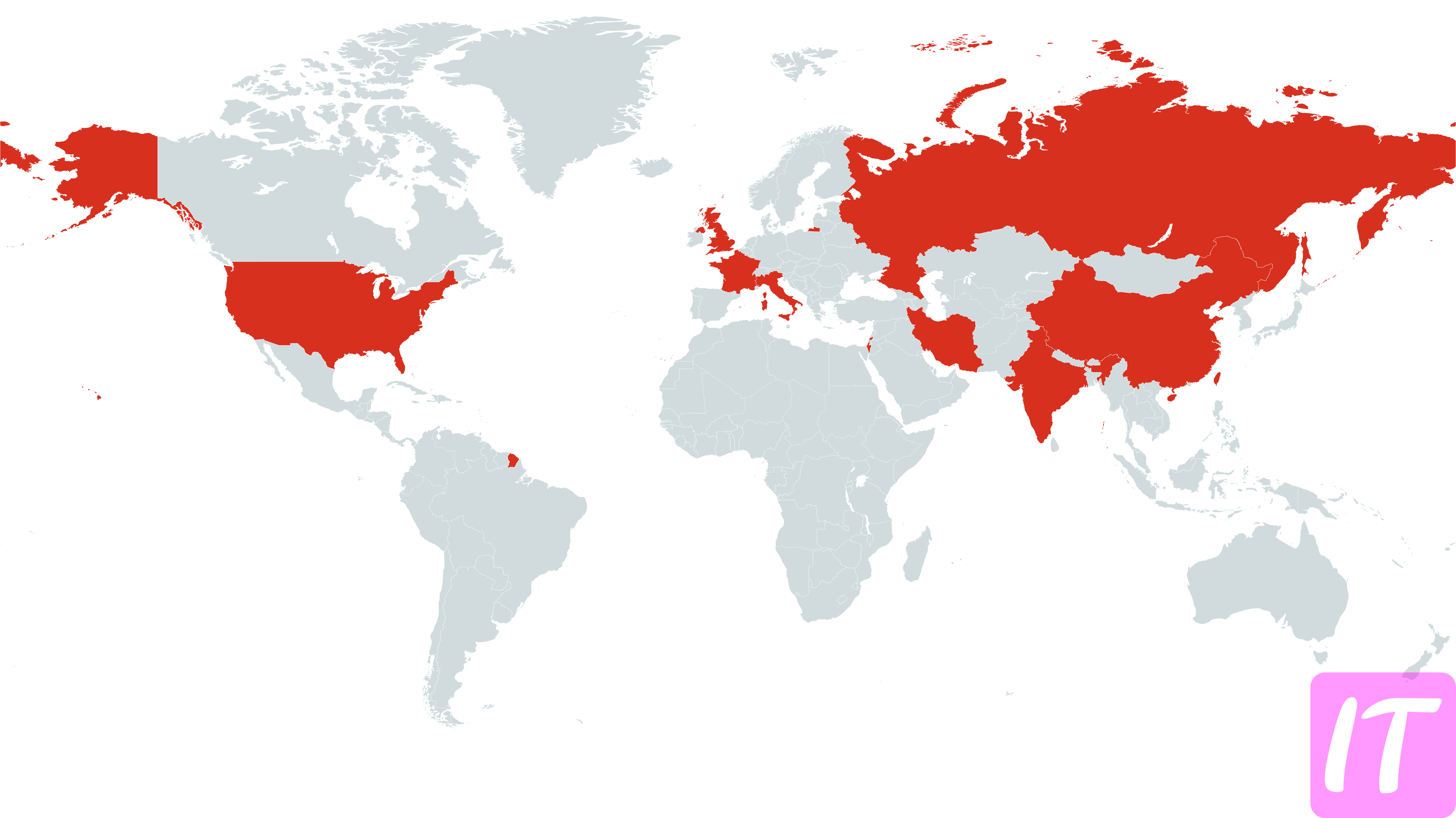In the realm of technology and internet services, giants clash daily, vying for dominance. Recently, a notable trend has been the relentless rivalry between Google and other titans like Amazon, Apple, and Facebook. While each competitor targets different aspects of Google’s vast ecosystem, their combined efforts create a challenging landscape for Google to navigate.
Historically, Google’s main challenges came from search engine competitors like Yahoo! and Bing. However, the game has evolved. Now, companies like Amazon compete on cloud services while Apple contests mobile OS dominance. A striking statistic reveals that Google’s parent company, Alphabet, has faced over $9 billion in antitrust fines from the EU alone, underscoring the intense scrutiny and pressure it endures. These challenges have led many to question the sustainability of its market-leading position.

Unveiling Google’s Main Rivals and Enemies
Google faces stiff competition from some of the biggest names in the tech industry. For example, Apple directly competes with Google in the smartphone arena with its iPhones and the iOS operating system. Meanwhile, Amazon battles Google on multiple fronts, including cloud services with AWS and online advertising. Facebook, now Meta, also aims to capture the digital ad market. These companies pose significant threats to Google’s dominance.
Apple’s iOS is a major rival to Google’s Android operating system. They constantly innovate to gain a larger share of the mobile market. Amazon’s cloud service, AWS, competes fiercely with Google Cloud Platform. Additionally, Amazon’s advertising business is growing rapidly, challenging Google’s ad revenue stream. Facebook, known for its social media dominance, leverages its huge user base to attract advertisers.
Other competitors encompass more niche markets but still pose threats. For instance, Microsoft’s Bing continues to be a notable search engine. Although it holds a smaller market share, Bing persists. Additionally, companies like DuckDuckGo offer privacy-focused search experiences, appealing to those concerned with data privacy.
Moreover, competition even extends to hardware products. Amazon’s Alexa and Google’s Assistant are in a tight race for dominance in smart home devices. Similarly, Apple’s Siri is another rival in this space. In these varied segments, Google constantly faces and adapts to the competition. This dynamic environment keeps Google on its toes and drives continuous innovation.
The Tech Titans: Apple, Amazon, and Facebook
Apple is a major player in the competition against Google. Known for its sleek devices and the iOS operating system, Apple has built a loyal customer base. Each year, new iPhones and updates to iOS draw significant consumer attention. This rivalry extends to digital services, with Apple Music competing against YouTube Music. The Apple App Store also stands in direct competition with Google Play.
Amazon presents another formidable challenge to Google, especially in cloud computing and online retail. Amazon Web Services (AWS) leads the way in cloud solutions, often outpacing Google Cloud in market share. Additionally, Amazon’s robust e-commerce platform competes with Google in the advertising space. Even Amazon’s Alexa battles Google Assistant for dominance in smart home technology. This multifaceted rivalry makes Amazon a significant threat.
Meanwhile, Facebook, now known as Meta, has its own grip on the digital world. Social platforms like Facebook, Instagram, and WhatsApp capture billions of users. Advertisers flock to these platforms, offering stiff competition to Google’s advertising business. Furthermore, Meta’s investment in virtual and augmented reality with Oculus and the Metaverse ambition presents new fronts in this ongoing tech rivalry.
Each of these tech giants targets different parts of Google’s business. Apple capitalizes on hardware and an integrated ecosystem. Amazon leverages its dominance in e-commerce and cloud services. Meta focuses on social media and futuristic technology. Together, they create a challenging environment for Google, pushing it to innovate continuously.
How These Competitors Challenge Google
Apple’s influence over both hardware and software creates significant hurdles for Google. With products like the iPhone and services like iCloud, Apple has established a seamless ecosystem. This integrated experience appeals to users, making it hard for Google to break through. Apple’s strict control over the App Store and its own privacy features also limit Google’s reach. This kind of control over the user’s experience challenges Google in mobile markets.
Amazon’s dominance in e-commerce and its powerful cloud computing services like AWS provide another layer of competition. AWS is often the first choice for businesses looking for cloud solutions, overshadowing Google Cloud. Furthermore, Amazon’s advertising platform is growing rapidly, eating into Google’s ad revenue. Their smart home devices, powered by Alexa, challenge Google Assistant. This multi-pronged approach makes Amazon a tough competitor.
Meta’s stronghold in social media is yet another significant challenge for Google. Facebook, Instagram, and WhatsApp collectively grab a majority of online social interaction. This large user base attracts advertisers, which directly affects Google’s ad business. Meta’s focus on virtual reality with Oculus and the concept of the Metaverse introduces new competitive arenas. Such innovations diversify the competition landscape for Google.
These competitors employ various strategies to challenge Google’s market position. Apple focuses on a cohesive user experience. Amazon leverages its extensive retail and cloud services. Meta utilizes its vast social media platforms and ventures into virtual reality. Together, their strategies create a complex and competitive environment for Google to navigate.
The Impact of Competition on Google’s Performance
Competition has pushed Google to evolve and innovate continuously. One area where competition impacted Google significantly is in its cloud services. Rivals like Amazon’s AWS and Microsoft’s Azure forced Google to improve its Google Cloud Platform. As a result, Google invested heavily in expanding its cloud infrastructure to stay competitive. This investment has led to significant advancements in cloud technology for Google.
The intense competition in mobile technologies also greatly affected Google. The battle between Android and Apple’s iOS has driven Google to constantly update and enhance its operating system. Each Android release aims to improve user experience, security, and functionality. These updates are essential to retain user loyalty and market share. The competition here ensures that Google can’t afford to rest on its laurels.
Advertising is another domain where competition shapes Google’s strategies. With businesses like Amazon and Meta increasing their share in digital advertising, Google has had to diversify its ad offerings. This led to innovations such as localized search ads and more targeted ad campaigns. These changes aim to provide advertisers with better returns on investment. Google’s focus on maximizing ad efficiency is a direct response to competition.
Moreover, Google’s approach to hardware development has also evolved due to competitors like Apple and Amazon. To keep up, Google introduced devices like the Pixel smartphones and Nest smart home products. These devices aim to integrate seamlessly with Google’s ecosystem, offering users a cohesive experience. Competing in this space requires Google to continually enhance their hardware designs and features.
Finally, the competition has forced Google to focus more on user privacy and data security. Companies like Apple emphasize privacy as a key feature, which pressured Google to follow suit. Google has since implemented more robust privacy controls and transparency measures. These moves aim to build user trust and comply with global data regulations. Ensuring user privacy is now a cornerstone of Google’s strategy.
Scrutinizing Google’s Position: Is Google truly failing?
Assessing whether Google is truly failing requires a close look at various metrics. Despite facing intense competition, Google’s revenue continues to grow. For instance, Alphabet reported a revenue of $257 billion in 2021. This substantial income indicates that Google retains a strong market position. However, financial success does not mean the absence of challenges.
One area of concern is the increasing regulatory scrutiny. Google has faced multiple antitrust lawsuits across the globe. These legal battles can be costly and affect the company’s public image. Additionally, complying with various regulations is a significant challenge. Such regulatory pressures can indeed impact Google’s operations and strategy.
Looking at market share, Google Search still dominates, but Bing and other search engines are gaining ground. Apple’s iOS also poses a threat to Google’s Android OS in the mobile segment. Despite these competitors, Google maintains a significant user base. The company continually enhances its search algorithms and user experience to stay ahead.
Google’s advertising business is another stronghold. Even with stiff competition from Facebook and Amazon, Google Ads generates substantial revenue. The diversification of ad formats has helped in retaining advertisers. Various small to medium businesses still rely on Google for their digital advertising needs. This consistent demand highlights Google’s stability in this sector.
Moreover, Google’s investments in future technologies like AI and quantum computing signify its long-term vision. These innovations provide a competitive edge in the tech landscape. Projects like Waymo in self-driving cars and advancements in Google Cloud show a commitment to growth. While challenges persist, these efforts showcase Google’s resilience and adaptability.

Frequently Asked Questions
This section addresses common questions about Google’s competition and market position. We aim to provide clear and concise answers to help you understand these complex issues.
1. How does Google compete with Apple in the mobile market?
Google competes with Apple primarily through its Android operating system, which powers many smartphones globally. While Apple’s iOS is exclusive to its devices, Android is open-source and used by various manufacturers. This difference allows Android to capture a larger share of the global smartphone market.
However, Apple’s focus on a seamless user experience and device integration poses a significant challenge. Google counters this by constantly updating Android features, ensuring compatibility across devices, and offering services like Google Play Store to enhance user engagement.
2. What impact does Amazon’s AWS have on Google Cloud?
Amazon Web Services (AWS) is the leader in cloud computing, making it a primary competitor for Google Cloud. AWS offers a broad range of services that attract businesses looking for reliable cloud solutions, often overshadowing Google Cloud’s offerings.
This competition pushes Google to continuously innovate and expand its cloud infrastructure to stay relevant. The rivalry has led to better services and more options for consumers as each company strives to outdo the other.
3. How is Facebook challenging Google’s advertising business?
Facebook challenges Google’s advertising revenue through its extensive social media platforms like Facebook, Instagram, and WhatsApp. These platforms attract billions of users daily, providing lucrative opportunities for advertisers who seek targeted marketing campaigns.
Google responds by diversifying its ad offerings and enhancing ROI for advertisers on platforms like YouTube and Search Ads. The ongoing battle ensures both companies continue improving their ad services to stay competitive.
4. What regulatory hurdles does Google face globally?
Google faces numerous regulatory challenges around the world, especially concerning antitrust laws and data privacy regulations. Governments in the EU, U.S., and other regions scrutinize Google’s business practices closely, leading to several lawsuits and hefty fines.
These regulatory pressures force Google to adapt its strategies continually while ensuring compliance with local laws. Despite these hurdles, Google’s ability to navigate this complex landscape showcases its resilience but adds an extra layer of operational complexity.
5. How do emerging competitors affect Google’s market share?
Emerging competitors like Microsoft’s Bing or privacy-focused search engines such as DuckDuckGo introduce new challenges for Google’s dominance in search engines. While they currently hold smaller market shares compared to Google, they are steadily growing due to unique selling points like privacy or innovative features.
The presence of these emerging players forces Google never to become complacent and drives continuous improvement in search algorithms and user experience enhancements. This competitive environment benefits consumers by providing them with more choices and better-quality services.
Conclusion
Google remains a formidable force despite intense competition from Apple, Amazon, and Facebook. Each competitor targets different areas, pushing Google to innovate and evolve constantly. This competitive environment not only benefits consumers but also drives technological advancements.
Although regulatory pressures and emerging rivals pose challenges, Google’s financial performance and market dominance remain strong. By focusing on innovation and user experience, Google continues to navigate a complex landscape effectively. As the digital world evolves, Google’s adaptability will be its key to enduring success.







